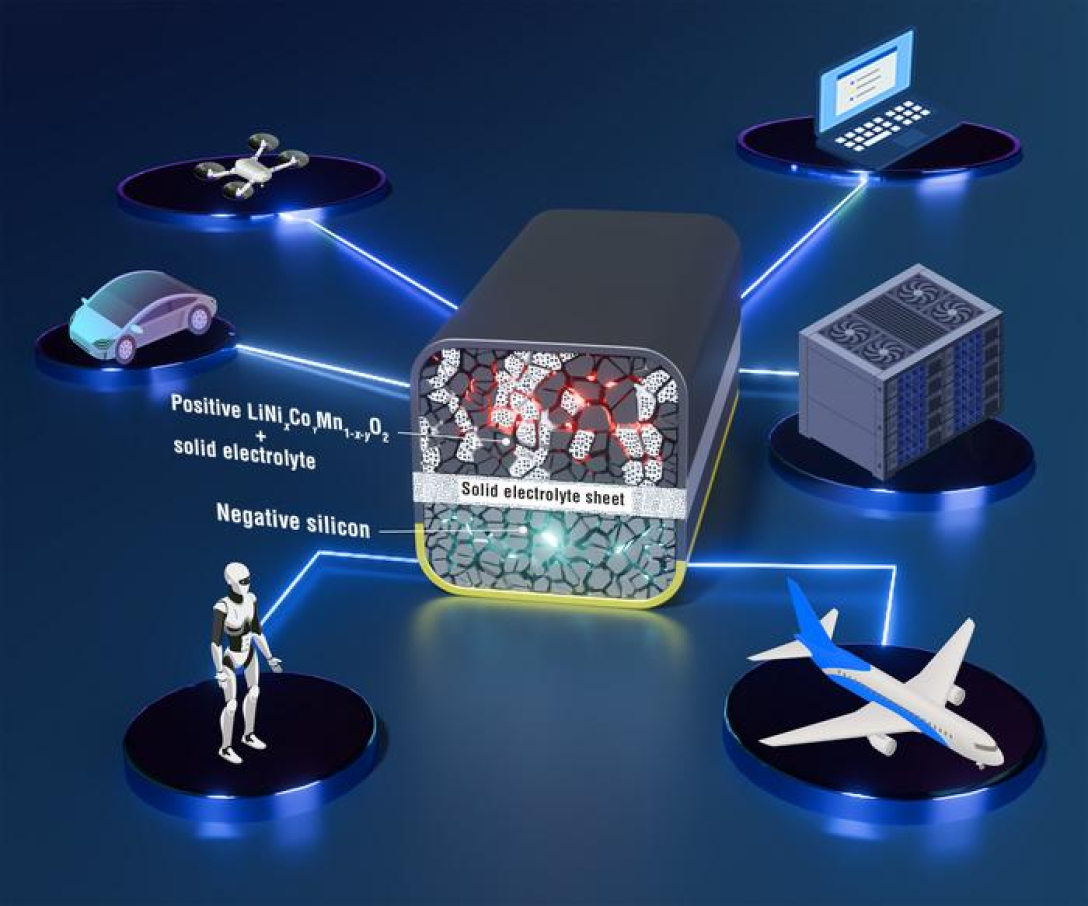Safe and durable: Japan has developed a fire-resistant lithium-ion battery.
A group of researchers from Doshisha University and TDK Corporation in Japan has developed a quasi-solid-state lithium-ion battery that is non-flammable and free from the drawbacks of traditional batteries. This information is mentioned in a press release published on the EurekAlert portal.
Currently, lithium-ion batteries are widely used in electronic devices and vehicles; however, they are prone to catching fire. Solid-state batteries are considered a safer alternative, but they face challenges in lithium-ion transfer.
According to one of the study's authors, Resuke Kido, the new fire-resistant quasi-solid-state battery represents a safer and more durable alternative to fully solid-state batteries with high energy density. It combines both liquid and solid electrolytes.
The battery design includes a silicon (Si) negative electrode and a LiNi 0.8 Co 0.1 Mn 0.1 O 2 (NCM811) positive electrode, which is regarded as next-generation material for LIB. These electrodes are separated by a solid lithium-ion conductive glass-ceramic sheet (LICGC™) from OHARA.
To enhance compatibility and performance, the researchers developed non-flammable, nearly saturated electrolyte solutions tailored for each electrode. The resulting quasi-solid-state pouch cells with a capacity of 30 mAh demonstrated good ionic conductivity, thermal stability, and electrochemical characteristics.
During testing, the battery exhibited high charge-discharge capacity with good cycling characteristics and minimal change in internal resistance. The press release states that this achievement could be beneficial for the development of more efficient and safer electric vehicles, as well as wireless devices such as drones.

"As the world moves towards carbon neutrality, electric vehicles have gained increasing attention in recent years. It is crucial to develop highly safe automotive batteries with an extended lifespan," emphasized Resuke Kido.
It is worth noting that the American company Microvast has announced a new milestone in the development of True All-Solid-State Battery (ASSB) technology, which could lead to the creation of safer and more efficient solid-state batteries with greater energy density.
Meanwhile, researchers from the Swiss Federal Laboratories for Materials Science and Technology (Empa) have developed a fungal battery that can be 3D printed.